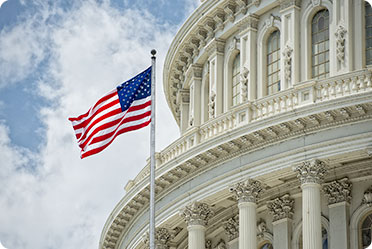
Recently, private interest groups have spearheaded a legislative effort to have the U.S. congress appropriate money to research new alcohol detection technology. If the plans of these interest groups are successful, then ultimately each new car sold in the United States will have a device attached that will supposedly measure the amount of alcohol in a driver’s system before the operator can start the vehicle.
On June 23, 2010, the Pennsylvania Liquor Control Board (PLCB) launched a pilot program for self-service wine kiosks in two supermarkets. According to the PLCB board chairman, Patrick Stapleton, “The self-service kiosks are an exciting new opportunity for consumers to pick up their groceries and a bottle of their favorite wine to compliment their dinner all in one stop.”
Astonishingly, all customers have to take a breath test before buying the wine. If the customer has a breath alcohol concentration (BrAC) of .02% or above, then that person will not be able to access the kiosk. The PLCB claims that this measure is to ensure that the consumer is not under the influence of alcohol. This claim is made despite that having a .02% BrAC does not medically or scientifically mean a person is under the influence of alcohol.
These two recent events show that our government is increasingly attempting to monitor and control its citizens’ behavior, even if the behavior is legal. Clearly, the impetus behind such measures is to prevent drunk driving. That goal of prevention is admirable and should be furthered in order to protect all people on the highways. However, the means used to curb drunk driving should not infringe the rights of law-abiding citizens.
Alcohol detection technology would force each driver to submit to some form of testing every time he or she wants to start a vehicle and also during the operation of the vehicle. Moreover, there would be potential false-positive results yielded by the technology that would prevent sober, law-abiding drivers from starting their vehicles. Imagine getting into your car to go to work, blowing into a breath testing device, and then discovering your car will not start because you used mouthwash before driving. It can and does happen with ignition interlock device technology.
As for the PLCB’s pilot program, apparently the PLCB has taken it upon itself to effectively create new law that prohibits people from buying wine after consuming minimal amounts of alcohol. Not since the days of Prohibition has the government enforced such stringent restrictions on alcohol purchase. Setting aside concerns that the PLCB is making new law without the right to do so, the PLCB acknowledges that limitations of the technology utilized may prevent people who have not even consumed alcohol from buying wine at the kiosk. Again, for example, the person who recently swigged mouthwash is needlessly penalized. Nonetheless, the PLCB believes that it is in the best interest of the Commonwealth and its citizens to “err on the side of caution.”
If history has shown us anything, it is that “erring on the side of caution” by penalizing law-abiding citizens in order to prevent crime is not what our founding forefathers envisioned for this country. There are better and less intrusive methods, such as alcohol abuse education, that can be employed to prevent drunk driving without treading on the rights of the citizenry.
Leckerman Law focuses on safeguarding the
rights of individuals charged with DUI, DWI, DAI, and
other alcohol-related criminal offenses - Call Us Now For
NJ DWI (856) 429-2323 | For PA DUI (215) 496-9292